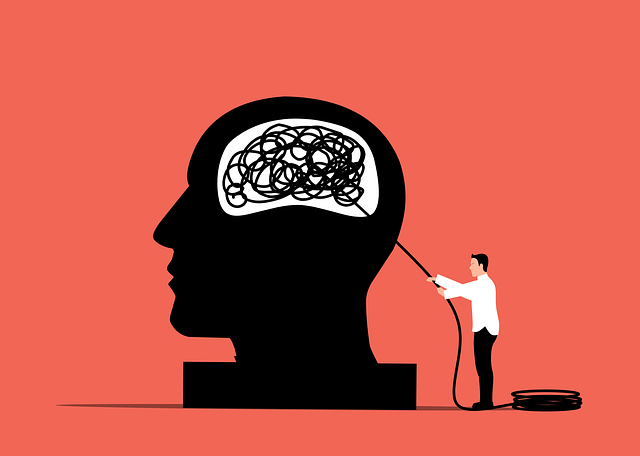Depression treatment programs offer comprehensive care through a blend of psychotherapy, lifestyle changes, and medication management tailored to individual needs. These programs utilize evidence-based techniques like CBT and IPT alongside antidepressants such as SSRIs and SNRIs to alleviate symptoms and improve daily functioning. Personalized medication plans, combined with active patient participation and support from healthcare providers, case managers, family, friends, and support groups, significantly enhance depression treatment outcomes.
Medication management support is a cornerstone in navigating complex depression treatment programs. This article provides an in-depth overview, delving into various aspects of managing depressive disorders. From understanding antidepressants and their types to tailoring individualized plans, we explore strategies to enhance therapy effectiveness. Additionally, we discuss challenges, side effects, and the importance of support systems, offering a comprehensive guide for both patients and caregivers in their journey towards mental well-being.
Understanding Depression Treatment Programs: An Overview

Depression treatment programs are designed to help individuals manage and overcome their mental health challenges. These programs offer a comprehensive approach, often incorporating various therapeutic techniques, medications, and lifestyle changes. The primary goal is to alleviate symptoms, improve overall well-being, and enhance daily functioning.
Understanding these programs involves grasping the different modalities they employ, such as cognitive-behavioral therapy (CBT), interpersonal psychotherapy (IPT), and medication management. Each program tailors its approach based on individual needs, severity of depression, and personal preferences. By combining evidence-based treatments with close monitoring and support, depression treatment programs aim to empower individuals to lead fulfilling lives.
The Role of Medication Management in Depression Therapy

Medication management plays a pivotal role in depression treatment programs, offering structured support for individuals seeking relief from this debilitating condition. It involves careful monitoring and adjustment of medications, ensuring they are effective and well-tolerated. Mental health professionals work closely with patients to assess their response to medication, making adjustments as needed to optimize outcomes.
This personalized approach is crucial in managing depression, a complex disorder that often requires a combination of therapeutic interventions. Medication management helps regulate mood, alleviate symptoms, and improve overall functioning. By combining this support with evidence-based psychotherapy, patients can navigate their depression treatment journey with enhanced effectiveness and improved quality of life.
Types of Medications for Depression: Antidepressants Explained

Depression is a common mental health disorder that can significantly impact daily life, and one of the key aspects of treating it is medication management. Antidepressant medications play a crucial role in helping individuals overcome depression by balancing brain chemicals that affect mood and emotions. There are several types of antidepressants available within various drug classes, each with its unique mechanism of action and potential side effects.
One commonly prescribed class is Selective Serotonin Reuptake Inhibitors (SSRIs). These medications increase serotonin levels in the brain, a neurotransmitter known to influence mood, appetite, and sleep. SSRIs are often the first-line treatment for depression due to their relatively mild side effects and effectiveness. Other types include Serotonin-Norepinephrine Reuptake Inhibitors (SNRIs), which target both serotonin and norepinephrine, offering potential benefits for those who don’t respond well to SSRIs. The choice of medication depends on individual needs, as depression treatment programs often tailor prescriptions to specific symptoms and patient profiles.
Individualized Medication Plans: Tailoring Treatments to Patients

In the realm of healthcare, effective medication management is a cornerstone of successful depression treatment programs. Every patient’s journey to recovery is unique, and so should be their treatment plans. Individualized medication plans recognize this by tailoring prescriptions to specific patient needs. Healthcare professionals carefully consider various factors, such as the severity of symptoms, medical history, and potential side effects, to prescribe medications that offer the best chance of positive outcomes.
This personalized approach ensures that treatments are not one-size-fits-all. By evaluating each patient’s unique circumstances, healthcare providers can optimize medication regimens, enhancing their effectiveness and minimizing adverse reactions. This individualized care is a key component in navigating the complex landscape of depression treatment, fostering better patient outcomes and improved quality of life.
Challenges and Side Effects: Navigating the Medication Journey

Medication management is a complex process, especially for those dealing with mental health conditions like depression. While depression treatment programs often include medication as part of a comprehensive approach, it’s not without challenges and potential side effects that require careful navigation. Patients may face difficulties adhering to their prescribed regimens due to various factors such as forgetting doses, experiencing unpleasant side effects, or struggling to understand the purpose of each medication.
Navigating this journey involves open communication with healthcare providers who can offer guidance on managing side effects, adjust dosages, or explore alternative medications if needed. It’s crucial for individuals to actively participate in their treatment by keeping track of medications, reporting any adverse reactions promptly, and seeking clarification on any concerns. By doing so, they empower themselves to successfully overcome challenges and achieve better mental health outcomes.
Support Systems for Effective Medication Management

Effective medication management requires a supportive system that includes both professional and personal components. Depression treatment programs often incorporate dedicated case managers who work closely with individuals to ensure adherence to their prescribed regimens. These professionals provide regular check-ins, offer educational resources, and address any concerns or questions that arise.
Additionally, family members and friends play a vital role in fostering successful medication management. They can help by creating reminders for taking medications, observing potential side effects, and offering encouragement during the treatment process. Support groups and community outreach programs also provide valuable platforms for sharing experiences, gaining insights, and building a network of understanding peers who are navigating similar challenges, especially in the context of depression treatment programs.
